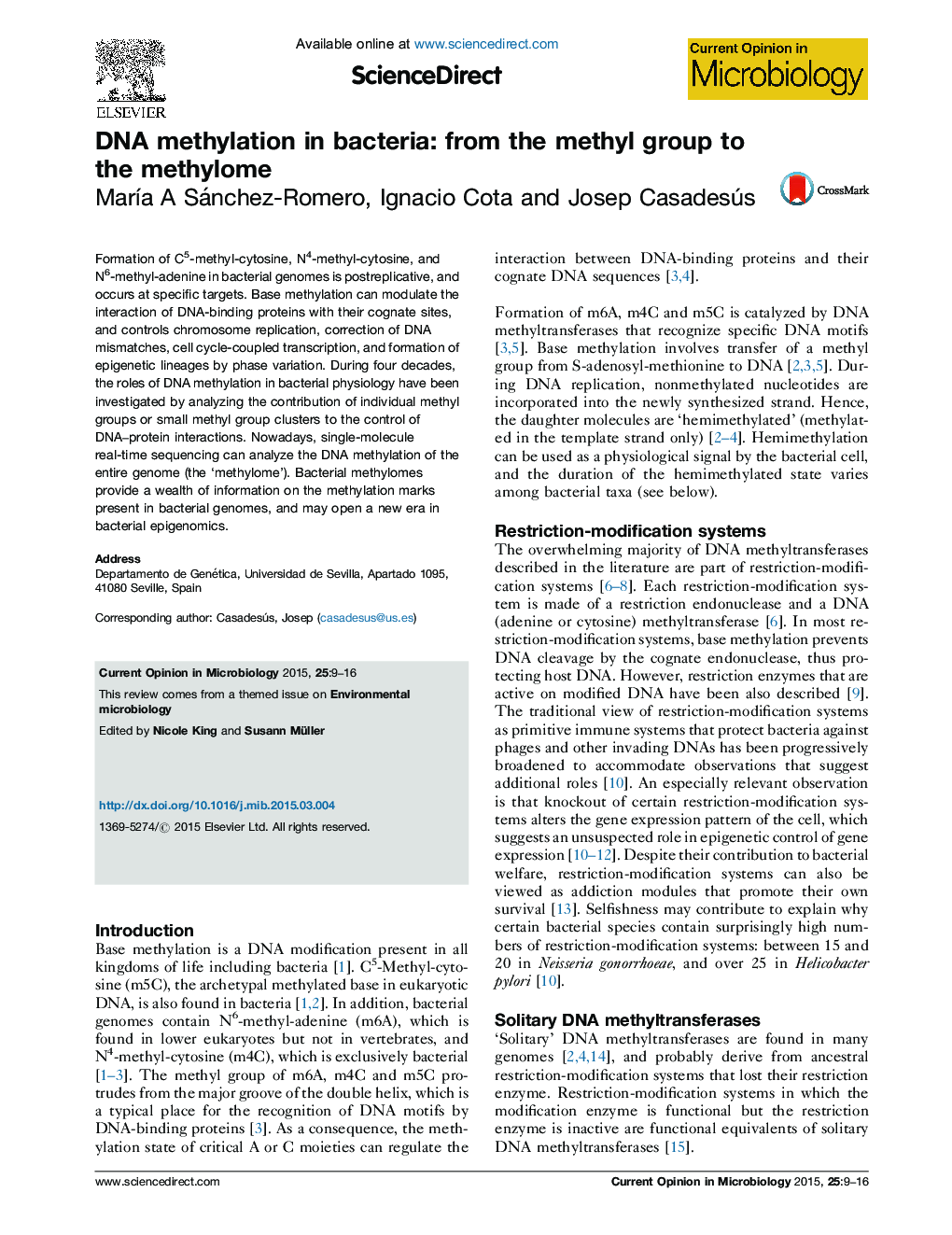| Article ID | Journal | Published Year | Pages | File Type |
|---|---|---|---|---|
| 6131751 | Current Opinion in Microbiology | 2015 | 8 Pages |
Abstract
Formation of C5-methyl-cytosine, N4-methyl-cytosine, and N6-methyl-adenine in bacterial genomes is postreplicative, and occurs at specific targets. Base methylation can modulate the interaction of DNA-binding proteins with their cognate sites, and controls chromosome replication, correction of DNA mismatches, cell cycle-coupled transcription, and formation of epigenetic lineages by phase variation. During four decades, the roles of DNA methylation in bacterial physiology have been investigated by analyzing the contribution of individual methyl groups or small methyl group clusters to the control of DNA-protein interactions. Nowadays, single-molecule real-time sequencing can analyze the DNA methylation of the entire genome (the 'methylome'). Bacterial methylomes provide a wealth of information on the methylation marks present in bacterial genomes, and may open a new era in bacterial epigenomics.
Related Topics
Life Sciences
Immunology and Microbiology
Microbiology
Authors
MarÃa A Sánchez-Romero, Ignacio Cota, Josep Casadesús,
